
Explore the Heart of Krabi: Krabi Town
Krabi Town is the vibrant, yet laid-back hub of Krabi Province in southern Thailand. It is a town that seamlessly blends natural beauty with rich cultural heritage. As you stroll through its streets, you will be greeted by a colorful mix of local markets, quaint cafes, and historic temples. The town sits along the Krabi River, offering stunning views and a serene atmosphere, perfect for a leisurely boat ride or a riverside walk. Krabi Town is known for its authentic Thai culture, making it a great place to experience the local way of life. The bustling Night Market is a must-visit, where you can savor delicious street food, shop for handmade crafts, and enjoy live music performances. The town is also home to Wat Kaew Korawaram, a beautiful Buddhist temple that offers a peaceful retreat from the lively streets. A short distance from Krabi Town, you will find some of Thailand's most famous natural attractions. The iconic Railay Beach, with its limestone cliffs and clear waters, is just a boat ride away. The Thung Teao Forest Natural Park, with its Emerald Pool and Blue Pool, provides an enchanting experience for nature lovers. Whether you are looking to relax, explore, or immerse yourself in local culture, Krabi Town has something for everyone.
Local tips in Krabi Town
- Visit the Night Market early to enjoy a wider selection of food and handmade crafts.
- Take a long-tail boat tour from the Krabi River to explore nearby islands and beaches.
- Wear comfortable shoes for walking around the town and visiting the local attractions.
- Carry cash as many local vendors and markets do not accept credit cards.
- Respect local customs and dress modestly when visiting temples and religious sites.
Explore the Heart of Krabi: Krabi Town
Krabi Town is the vibrant, yet laid-back hub of Krabi Province in southern Thailand. It is a town that seamlessly blends natural beauty with rich cultural heritage. As you stroll through its streets, you will be greeted by a colorful mix of local markets, quaint cafes, and historic temples. The town sits along the Krabi River, offering stunning views and a serene atmosphere, perfect for a leisurely boat ride or a riverside walk. Krabi Town is known for its authentic Thai culture, making it a great place to experience the local way of life. The bustling Night Market is a must-visit, where you can savor delicious street food, shop for handmade crafts, and enjoy live music performances. The town is also home to Wat Kaew Korawaram, a beautiful Buddhist temple that offers a peaceful retreat from the lively streets. A short distance from Krabi Town, you will find some of Thailand's most famous natural attractions. The iconic Railay Beach, with its limestone cliffs and clear waters, is just a boat ride away. The Thung Teao Forest Natural Park, with its Emerald Pool and Blue Pool, provides an enchanting experience for nature lovers. Whether you are looking to relax, explore, or immerse yourself in local culture, Krabi Town has something for everyone.
Iconic landmarks you can’t miss
Khao Khanab Nam
Discover the stunning limestone cliffs and serene beauty of Khao Khanab Nam, a must-visit natural attraction in Krabi, Thailand.
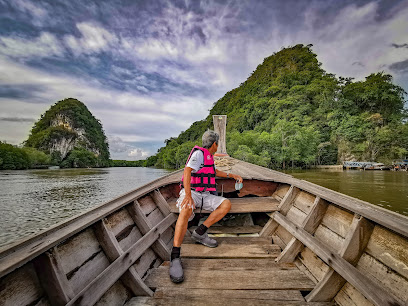
Krabi Urban Forest
Explore the lush beauty of Krabi Urban Forest, a serene retreat where nature meets culture in the heart of Krabi, Thailand.
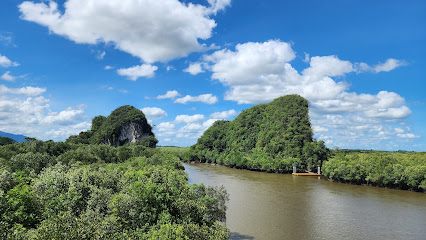
กม. 0 - Krabi Nok Awk Monument
Explore the Krabi Nok Awk Monument, a stunning cultural landmark that embodies the heritage and vibrancy of Krabi, Thailand.
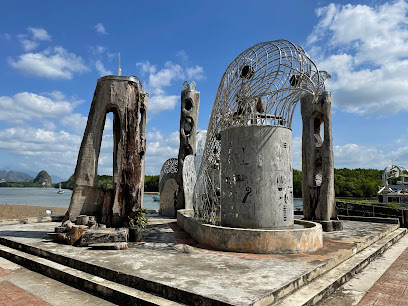
Krabi The watch Tower
Discover stunning views and local heritage at Krabi's Watch Tower, a serene escape showcasing the natural beauty of Thailand's coast.
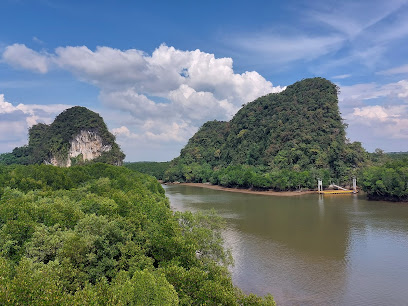
Krabi Street Art : The wall of Kaew Korawaram Temple
Explore the captivating blend of traditional heritage and modern street art at Krabi's Kaew Korawaram Temple, a unique cultural gem.
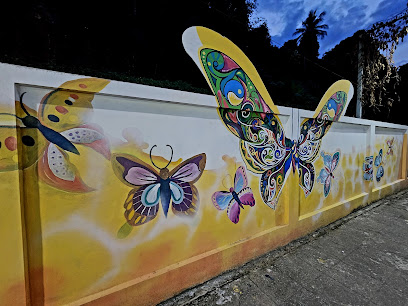
art in the city Krabi
Discover Krabi's artistic soul at Art in the City, where local talent and culture unite in a stunning natural setting.
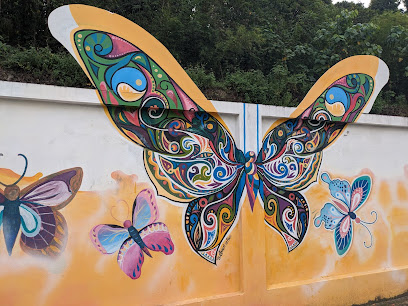
Krabi Street Art : Mardi and Gurney' Pitta
Explore the vibrant world of Krabi Street Art, an open-air gallery showcasing stunning murals that reflect the local culture and creativity.
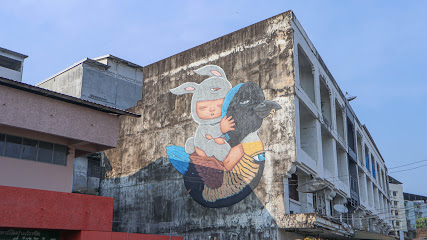
Krabi Street Art : Marine Habitat
Discover the captivating Krabi Street Art: Marine Habitat, a vibrant showcase of local creativity celebrating Thailand's rich marine life.
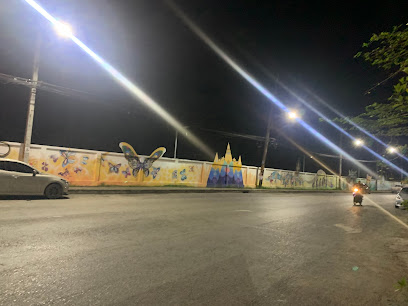
Krabi Street Art : Wild Life Wonder
Explore Krabi Street Art: Wild Life Wonder, a colorful open-air gallery celebrating local wildlife and vibrant artistry in the heart of Thailand's natural beauty.
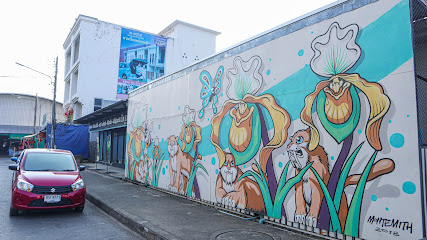
Krabi Street Art : Phra Sawet (King Rama IX's elephant)
Explore the vibrant Krabi Street Art: Phra Sawet, a cultural gem showcasing stunning murals and local artistry in the heart of Krabi.
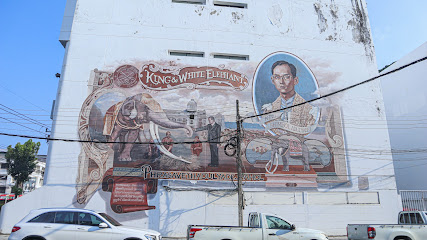
Unmissable attractions to see
Wat Tham Suea
Experience the spiritual tranquility and breathtaking views at Wat Tham Suea, a remarkable Buddhist temple in Krabi, Thailand.
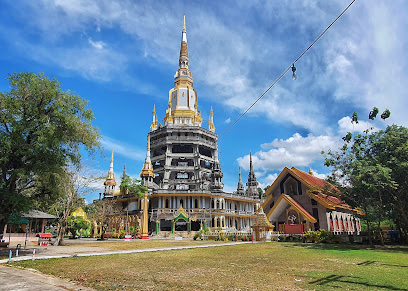
Chao Fah Park
Discover tranquility and natural beauty at Chao Fah Park, a serene oasis in the heart of Krabi, Thailand, perfect for relaxation and exploration.
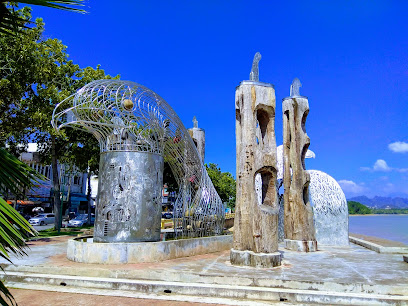
The Mud Crabs Sculpture
Experience the captivating Mud Crabs Sculpture in Krabi, a unique blend of art and nature that reflects the local culture and marine life.
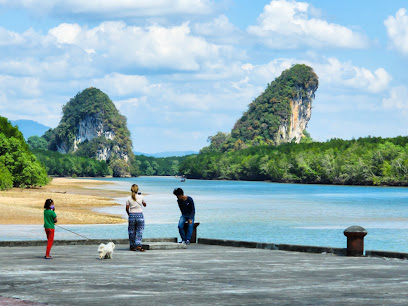
Khao Khanab Nam
Discover the natural beauty and cultural significance of Khao Khanab Nam, a stunning limestone landmark in Krabi, Thailand.
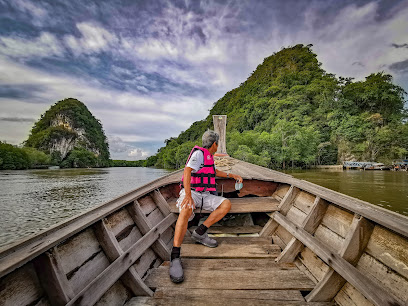
Krabi Urban Forest
Explore the serene beauty of Krabi Urban Forest, a lush escape in the heart of Thailand's vibrant Krabi district.
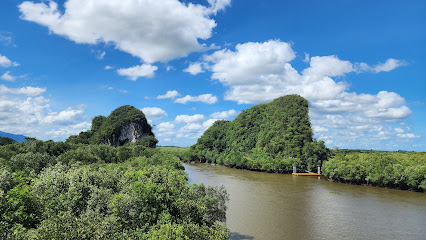
กม. 0 - Krabi Nok Awk Monument
Experience the beauty and cultural significance of the Krabi Nok Awk Monument, a serene riverside attraction in Krabi, Thailand.
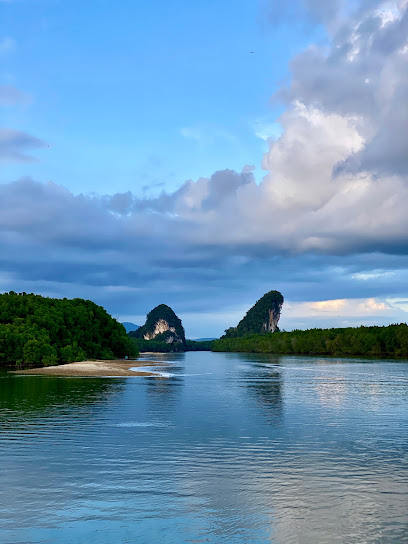
Cro-magnon Man Intersection
Discover the ancient heritage and breathtaking landscapes at Cro-Magnon Man Intersection, a top tourist attraction in Krabi, Thailand.
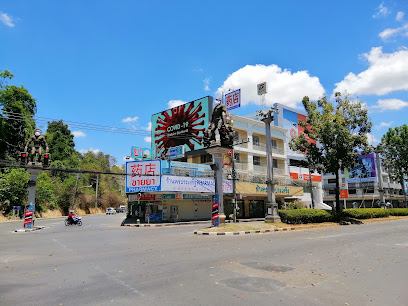
Krabi The watch Tower
Experience breathtaking panoramic views at Krabi The Watch Tower, a must-visit attraction in Thailand, perfect for nature lovers and photographers.
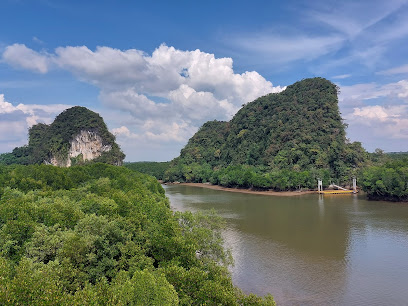
Krabi Street Art : The wall of Kaew Korawaram Temple
Explore the vibrant street art at Kaew Korawaram Temple in Krabi, a captivating fusion of culture and creativity in Thailand.
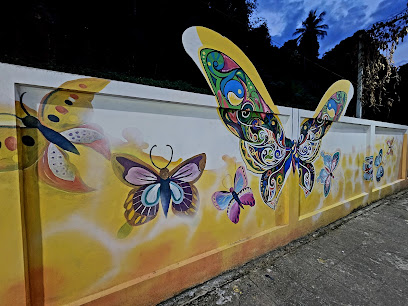
Krabi Street Art : Wild Life Wonder
Discover the captivating Krabi Street Art: Wild Life Wonder, where vibrant murals bring the region's wildlife to life in a stunning outdoor gallery.
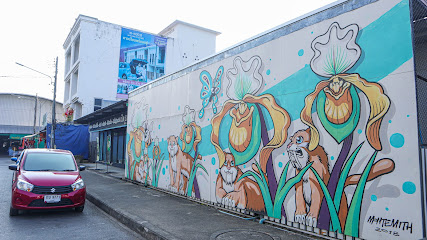
Essential places to dine
Anchalee Restaurant
Experience authentic Thai flavors at Anchalee Restaurant in Krabi - perfect for families seeking delicious meals in a welcoming atmosphere.
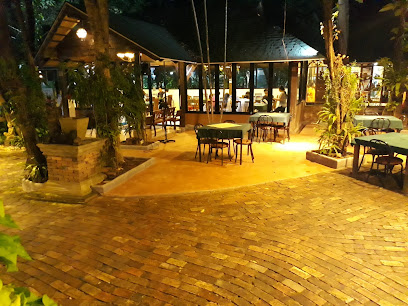
Restaurant Ruan Thip
Experience the rich flavors of Thailand at Restaurant Ruan Thip - where every dish tells a story.
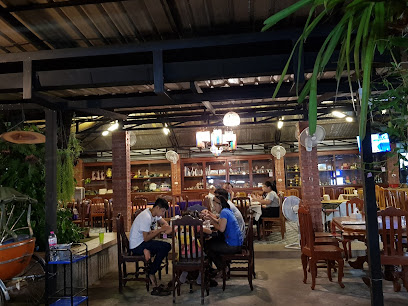
The River Restaurant & Bar
Experience authentic Thai cuisine with stunning riverside views at The River Restaurant & Bar in Krabi.
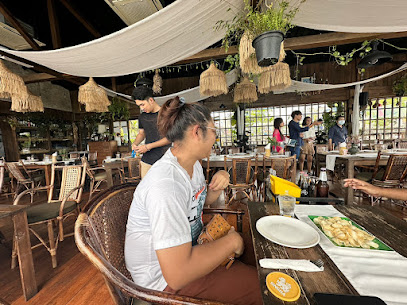
Baitoey Seafood Restaurant
Experience the best of Thai seafood at Baitoey Seafood Restaurant in Krabi - where fresh ingredients meet traditional flavors.
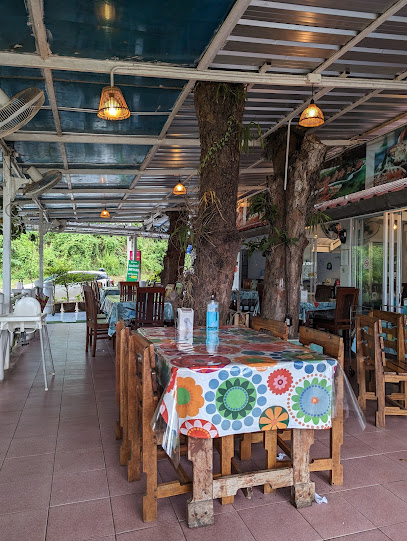
Viva Restaurant
Experience authentic Italian cuisine at Viva Restaurant in Krabi, where every meal is a celebration of flavors in a cozy atmosphere.
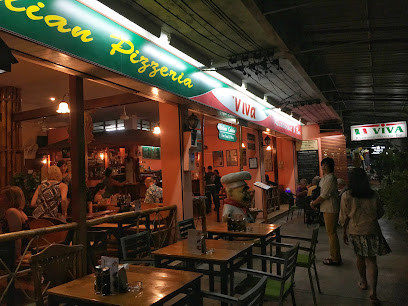
Uno Restaurant
Experience the best of Thai and international cuisine at Uno Restaurant in Krabi – where every bite tells a story.
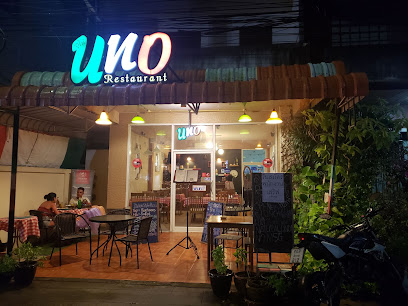
Pirates House Restaurant & Bar
Experience the best Indian and Thai cuisine at Pirates House Restaurant & Bar in Krabi—where flavor meets fun.
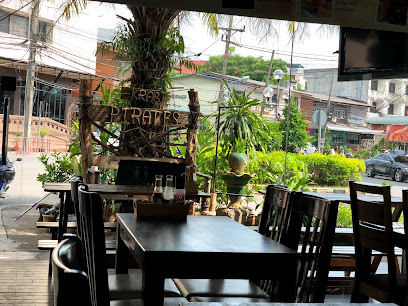
First Restaurant
Experience authentic Thai cuisine at First Restaurant in Krabi - where flavor meets affordability in a warm and welcoming setting.
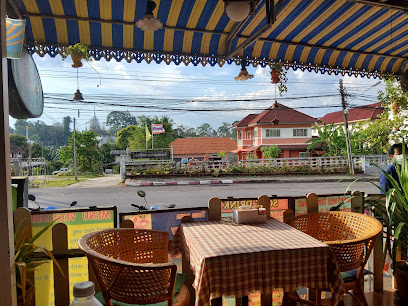
Bistro Monaco
Discover exquisite Thai cuisine at Bistro Monaco in Krabi - where every dish tells a story of flavor and tradition.
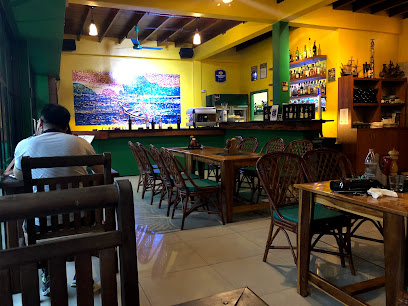
Marni Krabi town
Discover authentic Italian cuisine at Marni Krabi Town - where every dish tells a story of flavor and tradition.
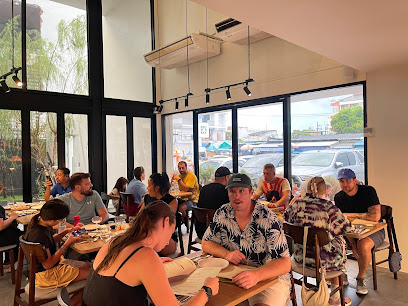
Markets, malls and hidden boutiques
Outlet Village Krabi
Discover unbeatable deals and a vibrant shopping experience at Outlet Village Krabi, the ultimate destination for savvy shoppers in Thailand.
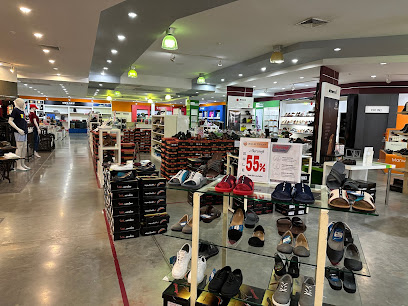
Cannabis’s Supershop Krabi Town
Explore the dynamic cannabis culture at Cannabis’s Supershop in Krabi Town, a unique destination for enthusiasts and curious travelers alike.
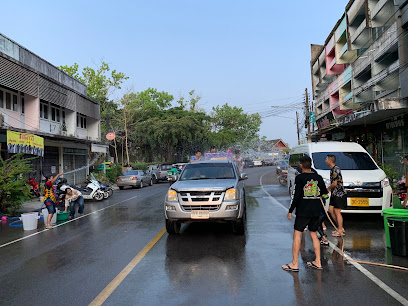
Cannabis Shop OG 98 (weed)
Discover Krabi's premier cannabis destination at Cannabis Shop OG 98, where quality meets culture in a welcoming atmosphere.
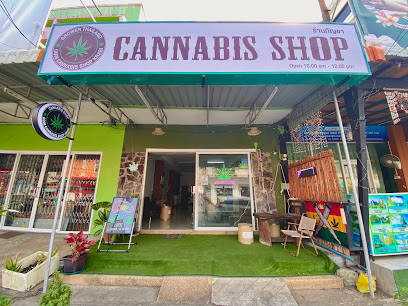
Sesh house cannabis krabi city
Explore Sesh House in Krabi City for an unforgettable cannabis experience, offering quality products in a welcoming atmosphere.
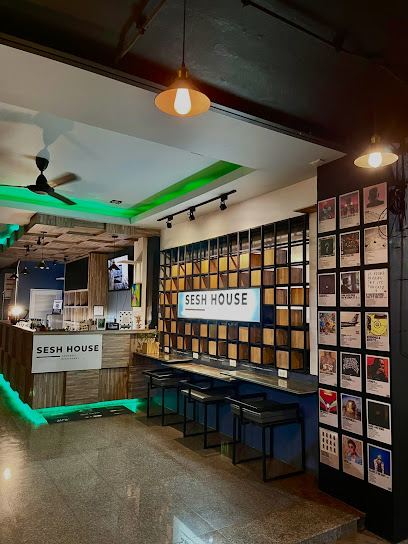
Evening Street Market
Discover the vibrant Evening Street Market in Krabi, where local flavors and crafts come together in a lively atmosphere under the stars.
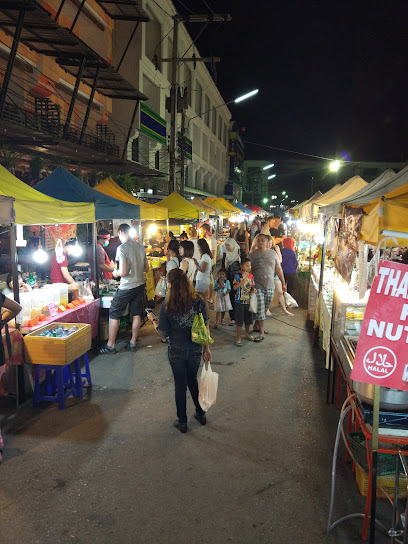
Varich Krabi Batik (Batik Center Krabi)
Immerse yourself in the vibrant world of traditional Thai batik at Varich Krabi Batik, where artistry meets culture.
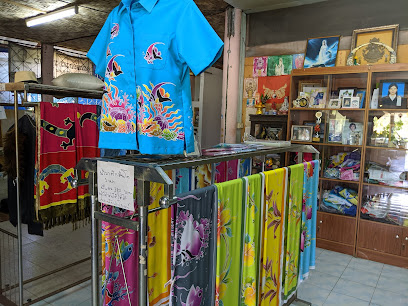
Merry Berry
Discover unique souvenirs and local crafts at Merry Berry, Krabi's charming gift shop for tourists seeking memorable treasures.
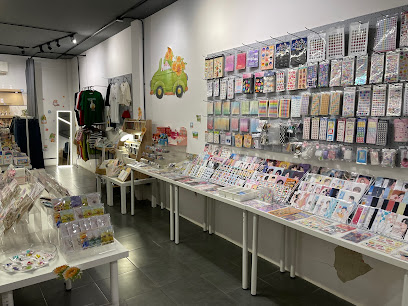
Rich Factory Outlet Shop
Explore the Rich Factory Outlet Shop in Krabi for premium health and beauty products in a welcoming atmosphere, perfect for tourists seeking quality and value.
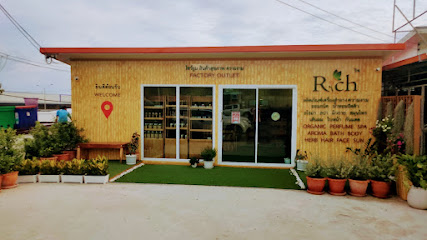
Women's Mini เสื้อในแฟชั่น
Explore Women's Mini in Krabi for the latest trendy underwear and unique clothing finds in a vibrant shopping atmosphere.

Burapha shop krabi
Explore Burapha Shop in Krabi for unique home goods and local crafts that capture the essence of Thailand's rich culture and vibrant charm.
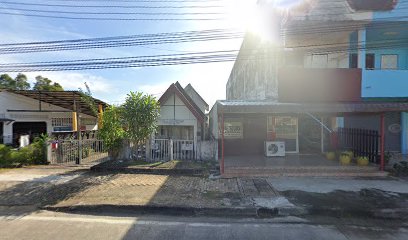
Essential bars & hidden hideouts
Booze Bar
Experience the vibrant nightlife of Krabi at Booze Bar, where friendly vibes and delicious drinks come together by the waterfront.
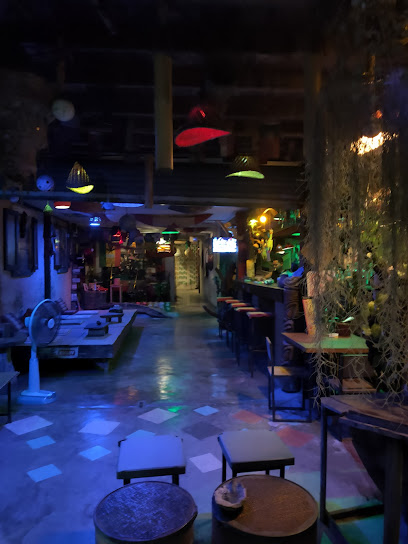
Ole Bar
Unwind at Ole Bar in Krabi - a vibrant live music venue offering local performances, refreshing drinks, and a lively atmosphere that captures Thai culture.
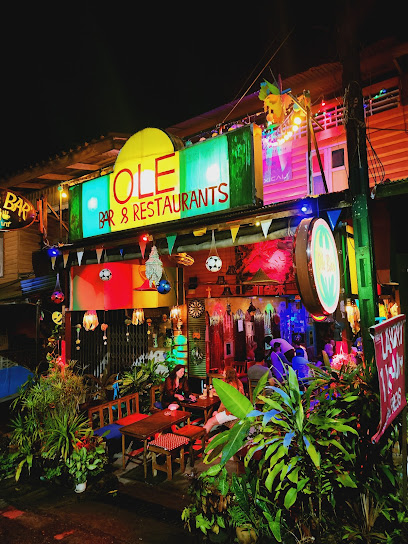
The Hobby Hops Craft Beer Bar And Restaurant At Krabi
Experience the best of craft beer and local cuisine at The Hobby Hops, Krabi's top bar and restaurant destination.
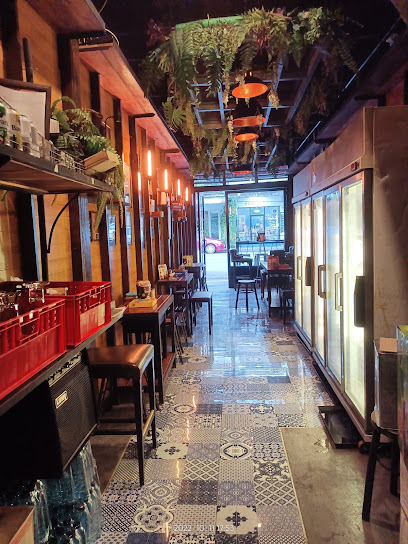
The Living Room
Experience the vibrant nightlife of Krabi at The Living Room, a cozy bar offering an array of drinks and a welcoming atmosphere.
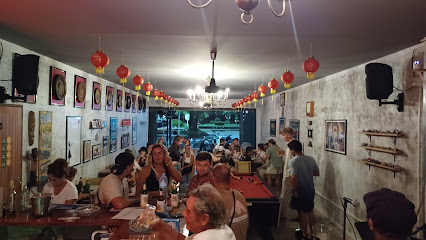
Arty Momma Rasta Bar
Experience the vibrant atmosphere and eclectic charm of Arty Momma Rasta Bar in Krabi, where refreshing drinks and lively ambiance await.
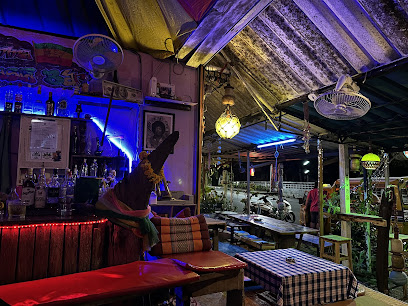
A Friendly Bar and Cafe
Experience the vibrant nightlife and friendly atmosphere at A Friendly Bar and Cafe in Krabi, a must-visit for every traveler.
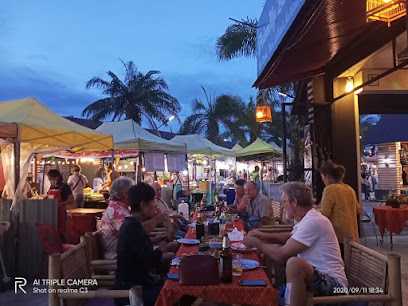
Zeus Pub Krabi
Experience the vibrant nightlife of Krabi at Zeus Pub, where live music, delicious drinks, and a lively crowd await you.
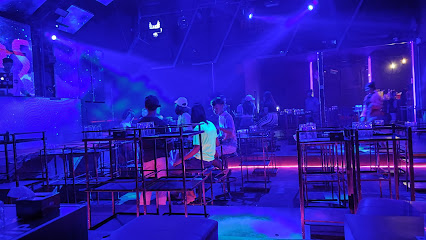
Buffalo Bar
Experience the vibrant atmosphere and refreshing drinks at Buffalo Bar, a top destination for nightlife in Krabi, Thailand.
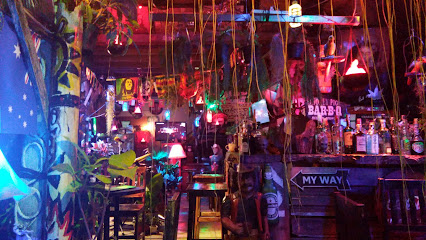
BOX BAR KRABI TOWN
Discover the lively ambiance and refreshing cocktails at Box Bar in Krabi Town, a hotspot for nightlife enthusiasts and travelers alike.
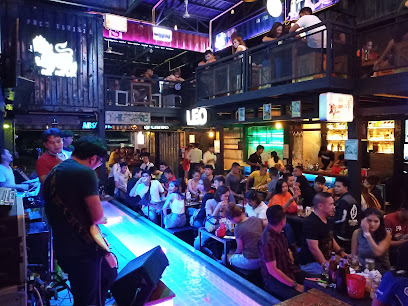
Private bar and reataurant
Discover the heart of Krabi's nightlife at the Private Bar and Restaurant, where relaxation meets a vibrant social scene.
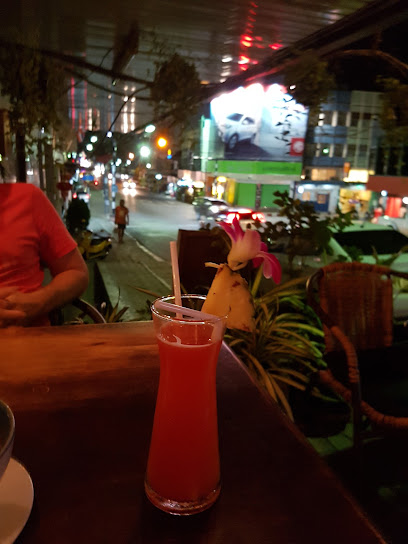
Local Phrases
-
- Helloสวัสดี
[sawasdee] - Goodbyeลาก่อน
[la kon] - Yesใช่
[chai] - Noไม่
[mai] - Please/You're welcomeโปรด
[prode] - Thank youขอบคุณ
[kop kun] - Excuse me/Sorryขอโทษ
[kor toht] - How are you?สบายดีไหม
[sabai dee mai] - Fine. And you?สบายดีค่ะ คุณล่ะ
[sabai dee ka kun la] - Do you speak English?คุณพูดภาษาอังกฤษได้ไหม
[kun poot paa saa angkrit dai mai] - I don't understandฉันไม่เข้าใจ
[chan mai kao jai]
- Helloสวัสดี
-
- I'd like to see the menu, pleaseขอดูเมนูหน่อยค่ะ
[kor duu menu noi ka] - I don't eat meatฉันไม่กินเนื้อ
[chan mai gin neuua] - Cheers!ชนเถอะ
[chon te] - I would like to pay, pleaseขอจ่ายเงินหน่อยค่ะ
[kor jai ngern noi ka]
- I'd like to see the menu, pleaseขอดูเมนูหน่อยค่ะ
-
- Help!ช่วยด้วย
[chuay duay] - Go away!ไปไกลๆ
[bpai glai glai] - Call the Police!โทรตำรวจ
[tor tamruat] - Call a doctor!โทรหมอ
[tor mor] - I'm lostฉันหลงทาง
[chan long tang] - I'm illฉันไม่สบาย
[chan mai sabai]
- Help!ช่วยด้วย
-
- I'd like to buy...ฉันอยากซื้อ...
[chan yak sue] - I'm just lookingฉันแค่ดูอยู่
[chan kae duu yu] - How much is it?ราคาเท่าไหร่
[ra ka thao rai] - That's too expensiveแพงเกินไป
[paeng kuen pai] - Can you lower the price?ลดราคาหน่อยได้ไหม
[lot ra ka noi dai mai]
- I'd like to buy...ฉันอยากซื้อ...
-
- What time is it?กี่โมงแล้ว
[gee mong leow] - It's one o'clockเป็นโมงเดียว
[pen mong diao] - Half past (10)ห้าโมงครึ่ง
[ha mong khrung] - Morningเช้า
[chao] - Afternoonบ่าย
[bai] - Eveningเย็น
[yen] - Yesterdayเมื่อวาน
[meua wan] - Todayวันนี้
[wan nee] - Tomorrowพรุ่งนี้
[phrung nee] - 1หนึ่ง
[neung] - 2สอง
[song] - 3สาม
[sam] - 4สี่
[see] - 5ห้า
[ha] - 6หก
[hok] - 7เจ็ด
[jet] - 8แปด
[paet] - 9เก้า
[gao] - 10สิบ
[sip]
- What time is it?กี่โมงแล้ว
-
- Where's a/the...?...อยู่ที่ไหน
[...yu tee nai] - What's the address?ที่อยู่อย่างไร
[tee yu yang rai] - Can you show me (on the map)?ช่วยแสดงให้ดูหน่อยได้ไหม
[chuay sa daeng hai du noi dai mai] - When's the next (bus)?เวลาถัดไปเมื่อไหร่
[wela tud pai meua rai] - A ticket (to ....)บัตรโดยสารไป...
[bat doy saan pai...]
- Where's a/the...?...อยู่ที่ไหน
History of Krabi Town
-
Krabi Town has its roots in early settlements that date back to the prehistoric period. Archaeological evidence suggests that the region was inhabited by communities engaged in fishing and trade, taking advantage of its strategic coastal location. The convergence of land and sea routes facilitated trade with neighboring regions, including China and India, contributing to its development as a significant trading hub.
-
During the 7th to 13th centuries, Krabi was part of the Srivijaya Empire, a powerful maritime kingdom based in Sumatra. This influence brought prosperity and cultural exchange to the region, with the introduction of Buddhism and trade networks that connected it with other parts of Southeast Asia. The remnants of this period can still be seen in local temples and cultural practices.
-
In the late 19th century, Krabi Town came under the influence of the Siamese Kingdom as the British expanded their presence in Southeast Asia. The town became an administrative center, and the establishment of rubber plantations and tin mining contributed to economic growth. This period marked the transition of Krabi from a small fishing village to a more organized settlement.
-
During World War II, Krabi Town was occupied by Japanese forces, which had a significant impact on the local population and economy. The town served as a strategic location for the Japanese military, and many local residents were forced into labor for the war effort. The aftermath of the war left Krabi Town to rebuild and redefine its identity in the post-war era.
-
In recent decades, Krabi Town has experienced rapid development, primarily driven by tourism. The natural beauty of the surrounding region, including limestone cliffs and pristine beaches, has attracted visitors from around the world. This influx of tourism has revitalized the local economy and led to a resurgence of cultural pride, with traditional festivals and crafts being promoted to both locals and tourists alike.
Krabi Town Essentials
-
Krabi Town is easily accessible from various neighborhoods in Krabi. From Ao Nang, you can take a local songthaew (shared taxi) which takes about 30 minutes. If you're coming from Railay Beach, you can take a long-tail boat to Ao Nang and then transfer to a songthaew. If you are traveling from the Krabi Airport, taxis and shuttle vans are available, with a journey time of approximately 30 minutes.
-
Krabi Town is compact, making it easy to explore on foot. For longer distances, tuk-tuks and songthaews are available and are a convenient way to navigate the town and surrounding areas. Bicycles can also be rented from local shops, providing a great way to discover Krabi at your own pace. However, public buses are not common within the town itself.
-
Krabi Town is generally safe for tourists, but it's wise to remain vigilant. Petty crime, such as pickpocketing and bag snatching, can occur, especially in crowded markets. Avoid dark, isolated areas at night. While most parts of Krabi Town are safe, areas close to the waterfront may have higher instances of petty crime. Always keep your belongings secure and be aware of your surroundings.
-
In case of an emergency, dial 191 for police assistance, 1669 for medical emergencies, or 199 for fire services. The local hospital, Krabi Hospital, provides comprehensive medical care. It's advisable to have travel insurance that covers medical issues. Pharmacies are widely available for minor health concerns.
-
Fashion: Do dress modestly, especially when visiting temples. Avoid beachwear in town. Religion: Do be respectful of local customs when visiting religious sites, such as removing shoes and covering shoulders. Public Transport: Do give up your seat for the elderly and pregnant women. Don't engage in loud conversations on public transport. Greetings: Do greet locals with a smile and 'Sawasdee' (hello). Don't use overly familiar gestures. Eating & Drinking: Do try local street food and eat with your right hand. Don't waste food, as it is considered disrespectful.
-
To experience Krabi Town like a local, visit the morning market for fresh produce and local delicacies. Engage with vendors and try the local dishes, such as khao soi (curry noodle soup). Don't miss the chance to explore the riverside night market, where you can taste a variety of street food. Consider visiting local temples, such as Wat Kaew Korawaram, for a glimpse into the local culture. Join in community events if available, as they provide a deeper understanding of the local way of life.
Trending Landmarks in Krabi Town
-
Khao Khanab Nam
-
Krabi Urban Forest
-
กม. 0 - Krabi Nok Awk Monument
-
Krabi The watch Tower
-
Krabi Street Art : The wall of Kaew Korawaram Temple
-
art in the city Krabi
-
Krabi Street Art : Mardi and Gurney' Pitta
-
Krabi Street Art : Marine Habitat
-
Krabi Street Art : Wild Life Wonder
-
Krabi Street Art : Phra Sawet (King Rama IX's elephant)
Nearby Cities to Krabi Town
-
Things To Do in Phuket
-
Things To Do in Trang
-
Things To Do in Nakhon Si Thammarat
-
Things To Do in Surat Thani
-
Things To Do in Koh Samui
-
Things To Do in Satun
-
Things To Do in Ranong
-
Things To Do in Langkawi
-
Things To Do in Chumphon
-
Things To Do in George Town
-
Things To Do in Penang
-
Things To Do in Kota Bharu
-
Things To Do in Ipoh
-
Things To Do in Cameron Highlands
-
Things To Do in Medan










